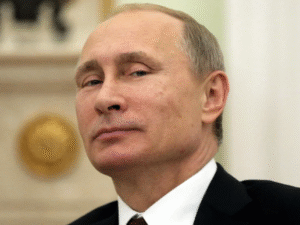# How Are EU Sanctions Affecting Indian Refiners Tied to Russia? Learn What’s at Stake for Global Oil!
Despite prevailing opinions that EU sanctions against Russia would have limited impact without backing from the U.S., the consequences have been significant for some, particularly a notable Indian refiner with ties to Russia’s oil behemoth, Rosneft. Nayara Energy, a key player in India’s oil sector, finds itself in a challenging position due to these sanctions.
The Impact on Nayara Energy: A Closer Look
Nayara Energy, which operates India’s third-largest refinery capable of processing 400,000 barrels per day, is 49% owned by Rosneft. The company has recently faced difficulties in trading its fuel products. This situation underscores the broader implications of the EU’s latest punitive measures on Russian oil affiliates. At least three tankers filled with fuel from Nayara’s facilities have encountered significant sales hurdles, highlighting the sanctions’ effectiveness.
EU News and Global Oil Dynamics
The EU’s stance forms part of a broader strategy to curb Russia’s economic capabilities in light of ongoing geopolitical tensions. These sanctions not only affect the direct targets but also ripple across the global oil market, influencing trade patterns and strategic alliances. The situation with Nayara Energy exemplifies how intertwined global markets are and how regional policies can have far-reaching effects.
Strategic Implications for Global Oil Markets
For the global oil market, the repercussions of such sanctions extend beyond immediate supply disruptions. They force market players to reassess their sourcing strategies and geopolitical alignments. This recalibration of supply chains can lead to volatility in oil prices and shift the dynamics of global energy dependence.
Future Prospects for Nayara Energy and Similar Companies
Looking ahead, companies like Nayara Energy may need to navigate these challenges by diversifying their trade networks or seeking exemptions from certain sanctions. The evolving landscape will require strategic agility to maintain operational stability and competitive edge in a tightening global market.
Conclusion: Navigating New Realities
The EU’s sanctions against Russian oil interests, exemplified by the challenges faced by Nayara Energy, highlight the complex interdependencies within the global oil market. As entities adjust to these new realities, the broader implications for global energy strategies and economic alliances will continue to unfold, shaping the future of international trade and economic diplomacy.
By understanding and adapting to these changes, companies can mitigate risks associated with geopolitical disruptions and leverage opportunities in a rapidly evolving market landscape.
Tags: #EUSanctions #NayaraEnergy #GlobalOil #EnergyTrade #GeopoliticalTension #OilMarkets #EconomicSanctions #Rosneft #OilRefining #MarketVolatility #TradeStrategies #EnergyDependence











Comments are closed.